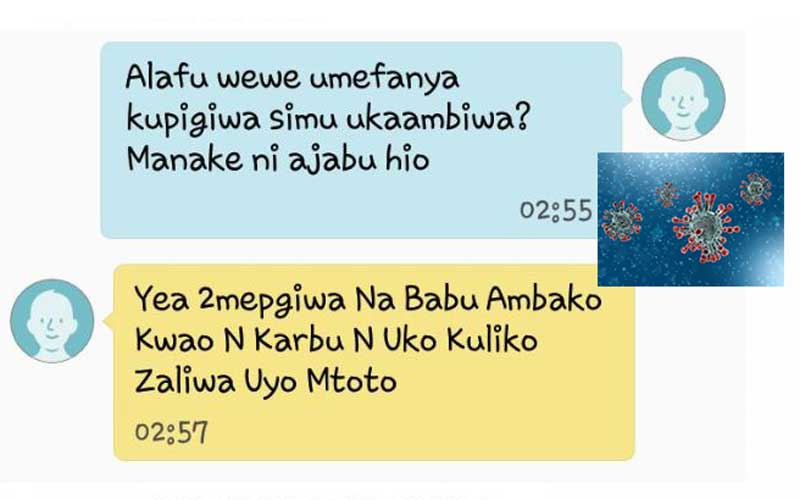×
The Standard e-Paper
Stay Informed, Even Offline

A screenshot of one of the messages asking people if they have tried the ‘cure’. Inset: A microscopic view of the virus. Coronavirus has no known cure, WHO has said. [Standard Digital]
A false coronavirus cure pitch, believed by so many, on Sunday woke up sleepy Coastal Kenya. The rallying call was for people to fill their stomachs with black tea.